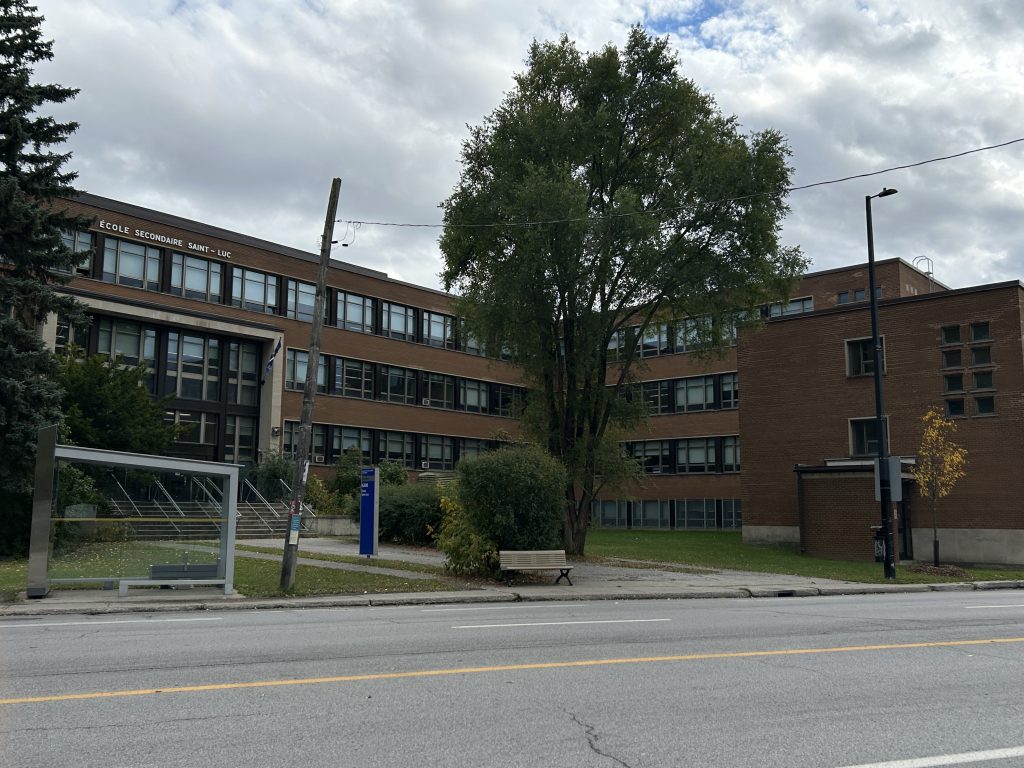Legault makes ministerial ‘adjustment’ to replace Fitzgibbon

Posted September 5, 2024 9:55 am.
Last Updated September 5, 2024 6:18 pm.
Immigration Minister Christine Fréchette will replace Pierre Fitzgibbon as the Economy and Energy Minister in Quebec.
The CAQ government made the announcement on Thursday in Quebec City, where Premier François Legault presented Fréchette and French Language Minister Jean-François Roberge – who was sworn in as the new Immigration Minister. Roberge is also the former Education Minister.
Reports swirled all morning about the roles, and Fréchette didn’t deny the information earlier in the day at an impromptu press conference in Rimouski, where the party was holding its caucus.
“Listen, my name is circulating for a position, so if that is what the Premier wants, I would be honoured. My goal is to work for the development of Quebec, whatever position I occupy.”
Before making the leap into politics in 2022, Fréchette was president and CEO of the Chambre de commerce de l’Est de Montréal from 2016 to 2021 and Director of External and Institutional Relations at Montréal International from 2014 to 2016.
The study of Bill 69 on energy is set to begin next week in the National Assembly and will be a focus for Fréchette.
“I will arrive prepared to welcome the groups about this very important bill,” she assured.
Legault acknowledged that she had an impressive file in front of her and thanked her for accepting this “great challenge.”
“I think she had some pretty high profile opportunities and she managed them very well,” said political analyst Karim Boulos. “Going forward, you know, immigration is still an issue. Mr. Roberge is going to have to handle that component along with language and try to tie the two together in a way that doesn’t come off as making Quebec look intolerant, but making Quebec look responsible in how it manages and integrates immigrants going forward into our landscape.”
In recent months, the Quebec government has been at loggerheads with Ottawa, particularly over temporary immigration.
Roberge responded to reporter questions in Quebec City, saying, “It is unacceptable to see the number of temporary immigrants who are on Quebec territory at the moment. We are working very, very hard to convince them of the obvious, that is to say a drastic reduction in that number., we also have issues in francization, in integration, because Quebec will stay a welcoming place.”
Legault was peppered with questions about electricity rates on Thursday at his 12:30 p.m. press conference that closed out the pre-sessional caucus in Rimouski.
But many of the questions directed at him involved the provincially owned utility — Hydro-Québec — and who will end up paying for investments topping $150 billion over the next decade that are expected to double its capacity.
Legault insisted that residential rates wouldn’t rise more than three per cent a year “as long as I’m premier, and in the foreseeable future.” But he hinted business will start to see their bills rise.
“It’s Quebecers who are the real owners of Hydro-Québec,” he said, “and it’s normal they are the ones who will benefit.”
Legault said he will remain heavily involved in the reform, which he called a “very important project for the future of Quebec.”
In addition to being the Minister of Economy, Innovation and Energy, Pierre Fitzgibbon was also responsible for Regional Economic Development and the Montreal region.
Fitzgibbon announced his departure from political life on Wednesday.
His departure means his seat in Terrebonne is vacant. A byelection is expected to be called within the next six months – PQ leader Paul St-Pierre Plamondon was already campaigning there on Thursday.
A CAQ cabinet shuffle is also expected by the end of the year.
“Mr. Legault’s cabinet has a lot of work ahead of it if he wants to try to maintain any kind of credibility as a potential future premier and also ward off the advances of Mr. St-Pierre Plamondon, who’s done quite well on the polls recently,” added Boulos. “So I think this is a big test for Mr. Roberge, but especially for Mme Fréchette.”
–This report by La Presse Canadienne was translated by CityNews








